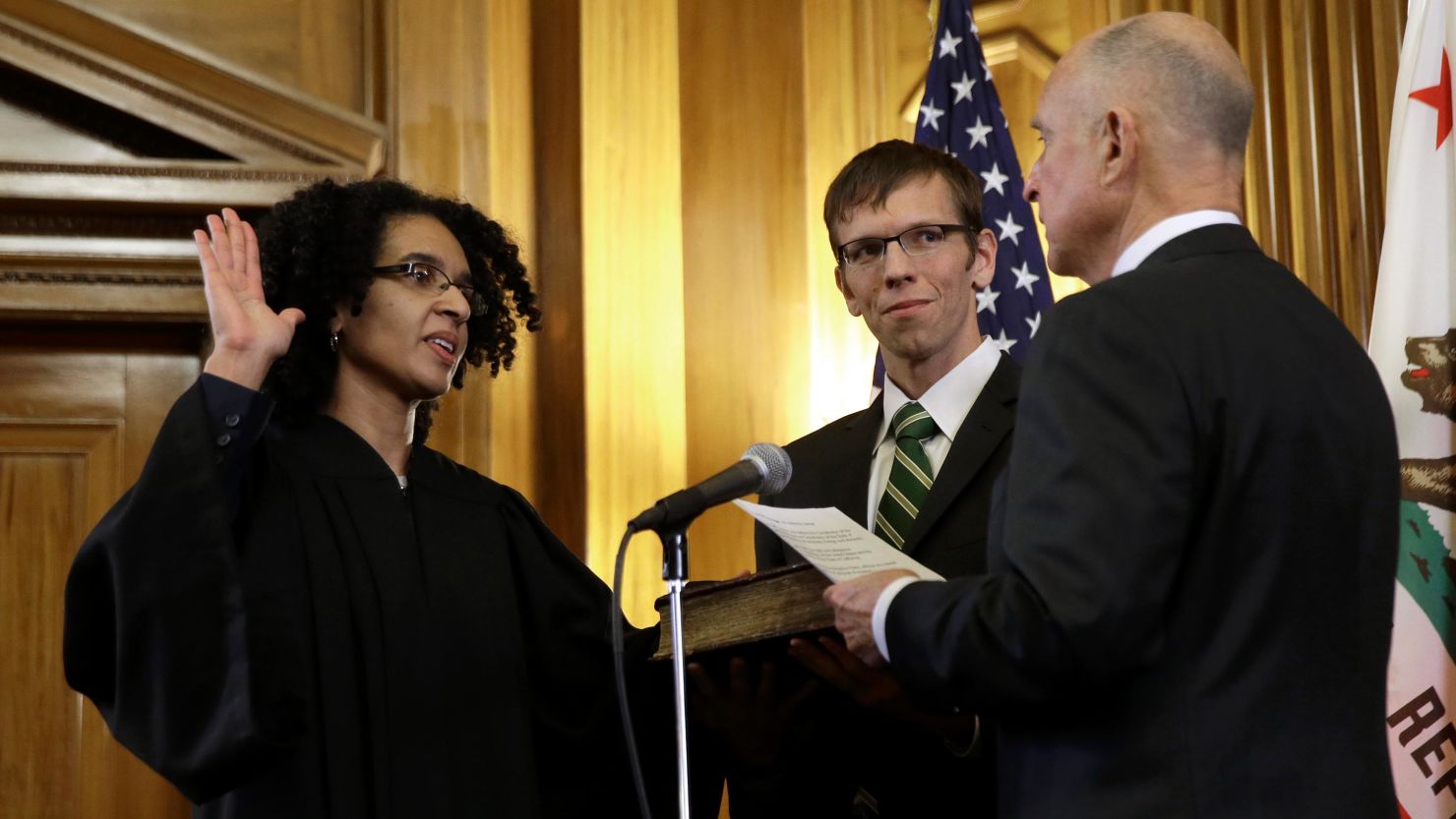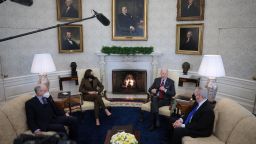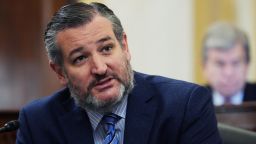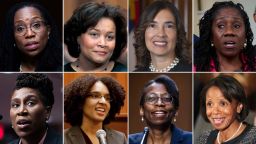As a 35-year-old assistant US solicitor general, Leondra Kruger stood before the US Supreme Court in October 2011 with a religious liberty case that was an outright loser.
The justices immediately pounced on her claim, made on behalf of the Obama administration, that First Amendment protections for religion did not apply to a church school’s dismissal of a teacher who held ministerial duties. Conservative Justice Antonin Scalia called the position “extraordinary.” Liberal Justice Elena Kagan said it was “amazing.”
But as Kruger, now a possible nominee for a Supreme Court seat herself, parried difficult questions, her voice never rose, her cadence never broke. Her arguments were methodical, if aggravating to the justices, as she defended an Equal Employment Opportunity Commission lawsuit on behalf of a teacher with narcolepsy who contended her dismissal violated the Americans with Disabilities Act. The government lost 9-0 as the court sided with the Hosanna-Tabor Evangelical Lutheran Church and ruled that the long-established “ministerial exception” prevented the lawsuit.
Supporters now promoting Kruger as a successor to retiring Supreme Court Justice Stephen Breyer highlight her poise under pressure, her legal acumen and her experience on the top court of the country’s most populous state.
Kruger, 45, has been a California Supreme Court justice since January 2015, appointed by then-Gov. Jerry Brown. The Pasadena native became only the second Black woman named to the state high court and, at age 38, reportedly the youngest California justice in more than a century. She was also the first one to have a baby while serving.
President Joe Biden faces a highly credentialed slate of “short listers” for the Breyer seat. If he selects Kruger, she will become the first justice elevated from a state court since 1981, when President Ronald Reagan chose Arizona state court Judge Sandra Day O’Connor as the first female justice in US history.
Biden would also be tapping a lawyer with significant federal experience, in the prestigious US Solicitor General’s Office from 2007 to 2013 and then nearly two years in the Department of Justice Office of Legal Counsel. As an advocate before the US Supreme Court, she argued 12 cases, more than any other Black woman. Through her meteoric rise, she has been known for extensive, leave-nothing-to-chance preparation and an analytical, modest approach.
But Kruger is not without disadvantages in the politically charged Supreme Court selection process, where just about every short lister has superior credentials and legions of well-connected backers.
Last year Kruger rejected a Biden administration pitch to leave the bench and return to Washington to serve as US solicitor general, the federal government’s top lawyer before the Supreme Court. (The solicitor general post requires Senate confirmation but has a limited tenure, unlike life tenure for presidential appointees to the US Supreme Court.)
As part of their multiple requests, administration officials asked Washington lawyer Donald Verrilli, himself a former US solicitor general and Kruger friend, to intercede.
When contacted by CNN, Verrilli declined to reveal conversations on the subject but said, “Leondra decided not to pursue the solicitor general position because she loves being a judge and she knows being a judge is what she’s meant to do in life. She didn’t want to give that up. That is a rare thing. She knows herself.”
Kruger has two children, a 9-year-old boy and a 5-year-old girl, and other friends said family considerations added to her reluctance to move for the solicitor general post. (Kruger has declined interview requests, and the Department of Justice did not respond to a request for comment.)
Depending on the pressures Biden might feel from advocates on the left, Kruger also may be hurt by her reputation as a liberal jurist with moderate tendencies. She lacks experience in the trenches with criminal defendants, as has US Appellate Judge Ketanji Brown Jackson, who worked as a federal public defender.
Supporters of Kruger describe her as a meticulous jurist in the mode of the late former Supreme Court Justice John Paul Stevens, for whom she served as a law clerk in 2003-04. Before that clerkship, she had worked as a law clerk to US Appellate Judge David Tatel, of the DC Circuit Court of Appeals. Tatel told CNN he recalled their interview in his chambers some 20 years ago.
“We were just five minutes into the conversation when I knew I would offer her the job,” Tatel said. “She had an unusually mature and sophisticated view of the law and the role of the courts.”
Southern California native
Kruger grew up in the Pasadena area, the child of two pediatricians. Her mother immigrated from Jamaica as a teenager and then obtained a medical degree from Howard University. She is still a practicing pediatrician. Her late father, of Polish descent, worked in public health administration.
Kruger attended Polytechnic School in Pasadena, where she was an academic standout and became a National Merit Scholarship winner and Presidential Scholar. In June 1993, she attended a White House ceremony with about 100 other high school seniors on the South Lawn. After President Bill Clinton spoke, he worked his way enthusiastically through the crowd of students, shaking hands.
The Pasadena Star-News reported that Kruger was able to shake the President’s hand. She also apparently was struck by how many of the high-achieving students she met were similarly headed to Harvard: “I feel like I know my whole freshman class already.”
At Harvard, Kruger wrote for The Crimson newspaper, and at Yale Law School she rose to editor in chief of the Yale Law Journal. She was plainly ambitious but always described as low-key, perhaps a reflection of her West Coast upbringing.
“She’s very California in the sense that she is incandescently smart but much more understated,” said American University law professor Amanda Cohen Leiter, who was a law clerk with Kruger in Stevens’ chambers. “She’s a person first, intellect second – not to take away from the intellect at all.”
Another friend and former colleague described Kruger as partial to Sue Grafton murder mysteries and the tamer reality TV shows. She has a surprisingly loud, riotous laugh that breaks her otherwise quiet manner.
Kruger is married to a fellow lawyer, Brian Hauck, whom she met when they were both young associates at the law firm of Jenner & Block in Washington. Hauck also worked in the Department of Justice. He returned to the firm in 2015 and is based in its San Francisco office.
When asked on her 2014 California court application to describe her hobbies, Kruger suggested they had all but evaporated since the birth of her first child but said she enjoyed reading contemporary fiction, spending time outdoors and attending the occasional yoga class. “I also enjoy learning foreign languages, although I have become mediocre (at best) at a very small handful of languages and fully proficient in none of them.”
When Kruger delivered her second child in 2016, a little over a year after donning the black robe, she made headlines in California as the first justice ever to have a baby while serving.
California record
Brown’s selection of Kruger reflected the wide net he was casting for young and diverse legal luminaries. He had earlier appointed Goodwin Liu and Mariano-Florentino Cuéllar, both of whom were law professors with vast experience and Yale law degrees.
When Kruger was selected, some California news reports speculated that she would be criticized for her arguments in the Hosanna-Tabor religion case. Obama administration lawyers had been trying to craft a position that would allow certain church employee claims of discrimination while respecting religious liberty. But by discounting any “ministerial exception” before the Supreme Court, they plainly erred. Chief Justice John Roberts wrote the opinion emphasizing the First Amendment’s “special solicitude” for the rights of religious entities.
“The Court cannot accept the remarkable view that the (First Amendment’s) Religion Clauses have nothing to say about a religious organization’s freedom to select its own ministers,” Roberts wrote, referring to the administration’s position.
For Kruger, however, any controversy evaporated, and she was approved. Brown’s choice required confirmation by a special three-member commission, which in 2014 included then-state Attorney General Kamala Harris, now vice president.
As part of her California court questionnaire, Kruger observed: “In my capacity as a lawyer for the federal government, I have worked on a number of issues that have been the subject of public debate and I have expressed views on behalf of the federal government with which others may reasonably disagree.”
To a question about the most important attributes of an appellate jurist, she was similarly anodyne, saying judges should approach cases with “an open mind,” “analytical rigor and precision,” and handle disputes “modestly and with restraint.”
The California Supreme Court has a heavy load of criminal cases. Kruger wrote an opinion last year for a unanimous court that gave a death row inmate the right to review a prosecutor’s notes for the inmate’s claim of racial discrimination during jury selection.
“… (A) litigant has the right to challenge an opponent’s discriminatory use of peremptory challenges,” Kruger wrote, referring to objections to proposed jurors. “But as both the United States Supreme Court and this court have repeatedly made clear, the harm of the practice is not limited to individual litigants. Discrimination in jury selection also does grievous injury to the jurors and to ‘the very integrity of the courts’ charged with ensuring equal justice for all comers in a diverse society.”
Kruger noted that prosecutors wanted to shield the notes as part of their traditionally protected “work product,” and said the state supreme court need not resolve broad issues of work-product protection. Rather, she wrote, the prosecutor in this case opened the door to use of the notes through information he offered to justify the juror challenges. She also wrote a unanimous opinion that gave defendants in misdemeanor appeals a state constitutional right to lawyers.
DNA testing law opinion
But in 2018, in a case that some critics have raised to question her liberal credentials, she authored an opinion upholding a state law requiring suspects who are arrested to provide cheek swabs for DNA testing.
Biden's SCOTUS front-runners
Kruger emphasized the narrow scope of the majority’s decision for the particular defendant, convicted of felony arson, who challenged the DNA collection law. She also said the court was “mindful of the heightened privacy interests in the sensitive information that can be extracted from a person’s DNA. … But our cases have also recognized that safeguards against the wrongful use or disclosure of sensitive information may minimize the privacy intrusion when the government accesses personal information, including sensitive medical information.”
Liu was among the dissenters in the 4-3 case, writing of the state’s DNA collection practice, “This is not a scheme carefully calibrated to identify felony offenders. Instead, it can be fairly described as a biological dragnet.”
Liu continued, “I have no doubt that law enforcement is aided by the collection and retention of massive numbers of DNA profiles, whether those profiles are used to confirm a person’s identity, to facilitate access to criminal history or other information about a person, or to help solve unsolved crimes. But if those interests are enough to justify the collection and retention of DNA from persons who are arrested but not convicted, not charged, or not even found to be lawfully detained so long as they do not seek expungement, then it is not that far a step for the state to collect and retain DNA from law-abiding people in general, including anyone who ‘applies for a driver’s license’ or ‘attends a public school.’ ”
A well-timed visit to DC
Overall, Kruger’s state court record suggests an approach more in sync with the liberal Breyer and Justice Elena Kagan than with Justice Sonia Sotomayor, today’s most compelling, dissenting voice on the 6-3 conservative-liberal bench.
On January 26, the day that word of Breyer’s impending retirement hit the news, Kruger was flying to Washington for a previously scheduled moot court competition.
By the time she arrived at George Washington University Law School, there was considerable attention on her as a short lister. She participated in the student moot court exercise on Thursday, forming a panel with Tatel and Judge Ryan Nelson, from the 9th US Circuit Court of Appeals. They questioned student teams who argued over a fictional state law that restricted access to hormonal drugs and prohibited surgeries on minors for gender transition. The law was challenged by the parents of children who wanted to begin transition surgical procedures.
The mock “Supreme Court” was not resolving the issue presented but rather determining which team offered the strongest arguments and oral advocacy. The students representing the parents won.
Afterward, each of the judges offered gentle criticism for the students’ performances. Kruger praised both sides for their preparation and focused arguments.
George Washington University law professor Alan Morrison, who had recruited the judges months ago, said later that Supreme Court speculation was in the air.
“But she carried on,” Morrison said. “She asked the questions she was going to ask. Pictures were taken. … It was as if nothing had happened.”







